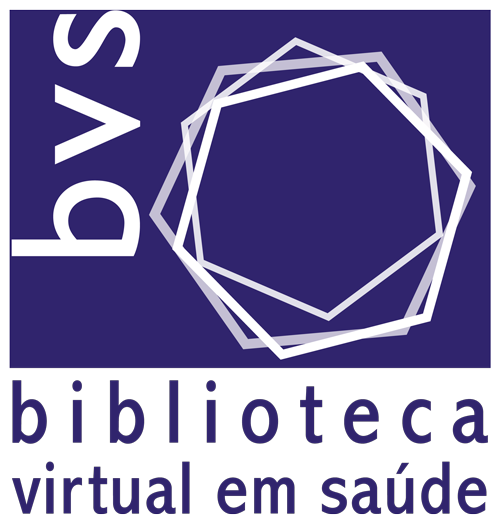Development of an additional filtration system by 3D printing for the implementation of new X-ray beam qualities used in diagnostic radiology.
DOI:
https://doi.org/10.15392/2319-0612.2022.1992Palabras clave:
Additional Filtration,, Diagnostic Radiology,, 3D Printing,, Prototyping,, Calibration.Resumen
The Calibration Laboratory (LCI) of the Nuclear and Energy Research Institute (IPEN-/CNEN) offers
calibration services for radiation measurements instruments used in radiation protection, diagnostic radiology
and radiotherapy. LCI produces radiation qualities and irradiation conditions which are in accordance with the
national and international standard requirements. In order to establish the recommended radiation qualities for
diagnostic radiology, X-ray beams generated in laboratory are modified for the irradiation conditions found in
equipment routinely used in healthcare services. In this work, a new additional filtration system was developed
to be adapted to the existing filter system at LCI. The new filter support can be coupled to the PTW Bench
Control installed at the LCI X-ray system. Using a FDM 3D printer, a support model and a set of drawers were
developed for the placement of additional filters. The models were also developed to fit each specific drawer of
each filter to be used in the laboratory routine, coupled to the specific sensors that fit the spaces of the support
part. Additionally, a microcontroller based on Arduino, micro switches, low- and high-level
programming, allow checking of drawer status and integration of information with the laboratory control
system. The system allows the recognition of the filter inserted in the drawer from sensors attached to the
support. Tests were carried out to verify the usability of the system in the routine, adding Ag (silver) and Cu
(copper) filters, for the characterization of attenuated radiation beams of interest in diagnostic radiology.
Descargas
Referencias
BETTI, F. “Desenvolvimento e implantação de um Programa de Controle e Aquisição de
Dados na Calibração de Instrumentos em Radiodiagnóstico”. 2007. Dissertação (Mestrado)
– Instituto de Pesquisas Energéticas e Nucleares, São Paulo. Orientador (a): Maria da Penha
Albuquerque Potiens.
RODRIGUES, Y. S. “Otimização de um sistema de controle e aquisição de dados para
calibração de medidores de radiação X com utilização de ferramentas computacionais”.
Dissertação (Mestrado) – Instituto de Pesquisas Energéticas Nucleares, São Paulo.
Orientador (a): Maria da Penha Albuquerque Potiens.
CORRÊA, E. L. “Metodologia De Controle De Qualidade E Implantação De Campos
Padrões De Radiação X, Nível Mamografia, Seguindo A Norma IEC61267”. 2010.
Dissertação (Mestrado) – Instituto de Pesquisas Energéticas Nucleares, São Paulo. Orientador
(a): Maria da Penha Albuquerque Potiens.
FRANCISCATTO, P. C. “Caracterização das Qualidades de Radiação X seguindo as
recomendações da norma IEC 61267 no Laboratório de Calibração do IPEN”. 2009.
Dissertação (Mestrado) – Instituto de Pesquisas Energéticas Nucleares, São Paulo. Orientador
(a): Maria da Penha Albuquerque Potiens.
OPENSCAD, “User Manual for OpenSCAD”, at
http://files.openscad.org/documentation/manual/OpenSCAD_User_Manual.pdf
SCHNEIDEREIT, D., et al. “Step-by-step guide to building an inexpensive 3D printed
motorized positioning stage for automated high-content screening microscopy”, Biosensors
and Bioelectronics, ed. 92, 472–481, Europa - Jan/2017, doi:
http://dx.doi.org/10.1016/j.bios.2016.10.078 . DOI: https://doi.org/10.1016/j.bios.2016.10.078
CRAFT, D. F. and HOWELL, R. M. “Preparation and fabrication of a full‐scale,
sagittal‐sliced, 3D‐ printed, patient‐specific radiotherapy phantom”, J Appl Clin Med
Phys. 18(5): 285–292, Set/2017, doi: https://doi.org/10.1002/acm2.12162 . DOI: https://doi.org/10.1002/acm2.12162
RAISE3D, “Technical Specifications for Raise3D Printer”, at
https://s1.raise3d.com/2020/01/Raise3D-Pro2-Technical-Specifications-01.pdf .
SHRESTHA, S., et al. “Towards standardization of x-ray beam filters in digital
mammography and digital breast tomosynthesis: Monte Carlo simulations and analytical
modelling”, Published 13 February 2017, Institute of Physics and Engineering in Medicine
Physics in Medicine & Biology, Volume 62, Number 5 2017 Phys. Med. Biol. 62 1969, doi:
http://dx.doi.org/10.1088/1361-6560/aa58c8 . DOI: https://doi.org/10.1088/1361-6560/aa58c8
GHOLAMKAR, L., et al. “Assessment of Mean Glandular Dose in Mammography
System with Different Anode-Filter Combinations Using MCNP Code”, Iran J Radiol. 2016
October; 13(4):e36484. Doi: http://dx.doi.org/10.5812/iranjradiol.36484 . DOI: https://doi.org/10.5812/iranjradiol.36484
Descargas
Publicado
Número
Sección
Licencia
Derechos de autor 2022 Brazilian Journal of Radiation Sciences (BJRS)

Esta obra está bajo una licencia internacional Creative Commons Atribución 4.0.
Licencia: los artículos de BJRS tienen una licencia internacional Creative Commons Attribution 4.0, que permite el uso, el intercambio, la adaptación, la distribución y la reproducción en cualquier medio o formato, siempre que se otorgue el crédito correspondiente al autor o autores originales y a la fuente, proporcione un enlace a la licencia Creative Commons e indique si se realizaron cambios. Las imágenes u otros materiales de terceros en el artículo están incluidos en la licencia Creative Commons del artículo, a menos que se indique lo contrario en una línea de crédito al material. Si el material no está incluido en la licencia Creative Commons del artículo y su uso previsto no está permitido por la regulación legal o excede el uso permitido, el autor deberá obtener el permiso directamente del titular de los derechos de autor. Para ver una copia de esta licencia, visite http://creativecommons.org/licenses/by/4.0/



























